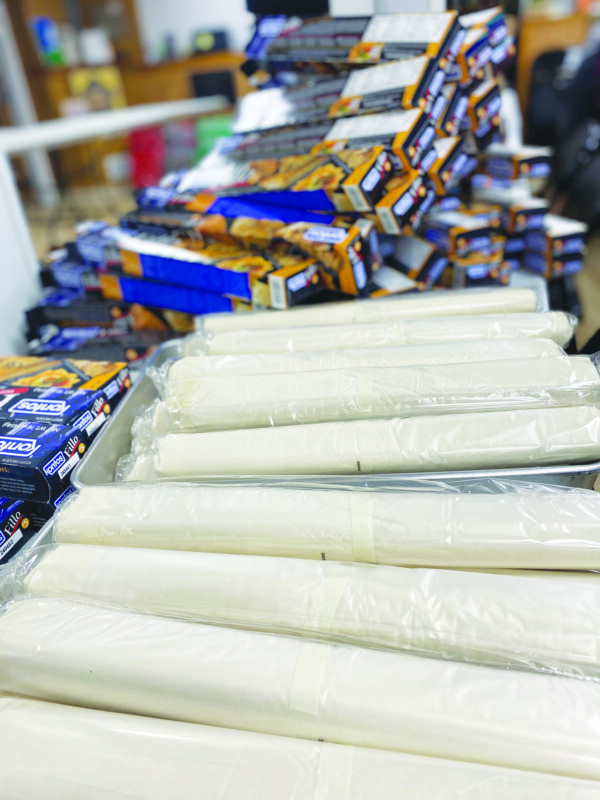The Colonial springtime menu
So let’s say, hypothetically, you’ve made it through another Colonial winter. It’s springtime in the 1750s, and you, your husband, and your eight children managed not to throttle each other while stuck together in a one-room cabin all winter. The leaves are on the trees, the birds are singing; things are definitely looking up.
Except that everyone’s getting extremely hungry.
“Spring was the worst time to be a settler,” said Allyson Szabo, who lives in Jaffrey and is an expert on Colonial-era cooking and author of The Re-enactor’s Cookbook, which was published in October 2020. “You’ve run out of the food you had stored from last year, and the food that was left over is now in the ground; you’ve committed it to the new crop. You’re trying to make do with whatever comes up in the spring.”
This isn’t to say there was nothing to eat — there was food to be found if you looked hard enough — but it was hard going for English colonists in New Hampshire. The native tribes had been here for hundreds of years and knew exactly where to find what they needed. The French colonists to the north had largely figured out how to make do until their crops came in. The problem for northern New Englanders was bread, or rather the lack of it. Szabo said the English colonists depended on bread to an extent that would surprise us today.
“Bread was about 60 percent of the colonists’ diet,” she said. And it wasn’t the bread that we are used to today. “Bread was much darker than it is today.” What we consider whole-wheat bread would have been considered white bread in the 1700s. “And that would have been very fine bread indeed, in the 18th century.”
You might bake your bread in a Dutch oven in hot coals, or you might have a beehive oven to bake your bread in. It might be outside — in which case, it would be shaped like a beehive — or it might be built into the fireplace where you did all your cooking. You might have seen these in old fireplaces — little cast-iron doors set off to the side of the hearth. During the 1750s, though, iron was too valuable to use on a door, so Colonial You would have a series of wooden ones that would have to be replaced fairly regularly.
But what happens when you use up the last of your wheat? Szabo said almost anything might be ground up and made into bread.
“I might be grinding barley, “ she said. “I might be grinding up beans. I recently learned that they might have used flour made from dried mushrooms.”
At this point in the Colonial year, you wouldn’t have eaten anything green since October; if you and your family didn’t have full-blown scurvy, you were certainly feeling scurvy-adjacent. Nothing you’ve planted is ready to eat yet — winters lasted longer, 250 years ago — so you would need to forage pretty intensely for vegetables.
“Greens are one of the early things that you can eat right now,” Szabo said. “There would be fiddleheads and nettles. I had horseradish greens this past week in one of my pies; I expected it to be spicy, but it was sweet — almost, but not quite, an apple flavor.”
There would be the very last of the salt pork left, although it might be looking a little worse for wear at this point, and a few scoops of dried peas, lentils, beans or barley.
“Most families would have a cow for milk and butter, “ Szabo said, “and there’d be some chicken. Once the new flock has been laid, you get to a certain point where you start eating the older hens who’ve stopped laying eggs. [Fortunately] at this time of the year … chickens would lay two or even three eggs per day.”
Colonists would have used eggs in everything, Szabo said, describing a common Colonial dish called “Salt Cod with Eggy Sauce”. The eggs would be hard-boiled, and the yolks would be ground up and stirred into the sauce. The hard-boiled egg whites would be grated and mixed in, and the sauce would be poured over the reconstituted dried fish.
Szabo said farmers in New Hampshire 250 years ago would look forward eagerly to the summer. Much like us, the colonists would have been watching their gardens with an eagle eye. Unlike us, they weren’t looking for validation though peonies; they were waiting on lettuce, because, you know — survival.
St. Nicholas Lamb Barbecue and Food Festival
Where: 1160 Bridge St., Manchester
When: Saturday, June 15, noon to 5 p.m






